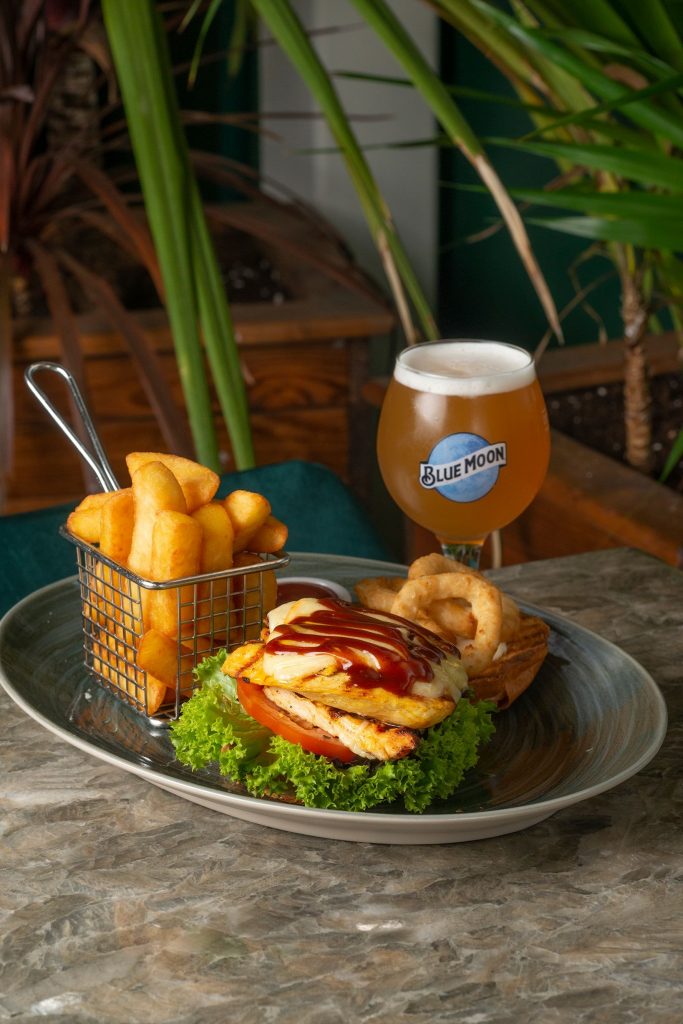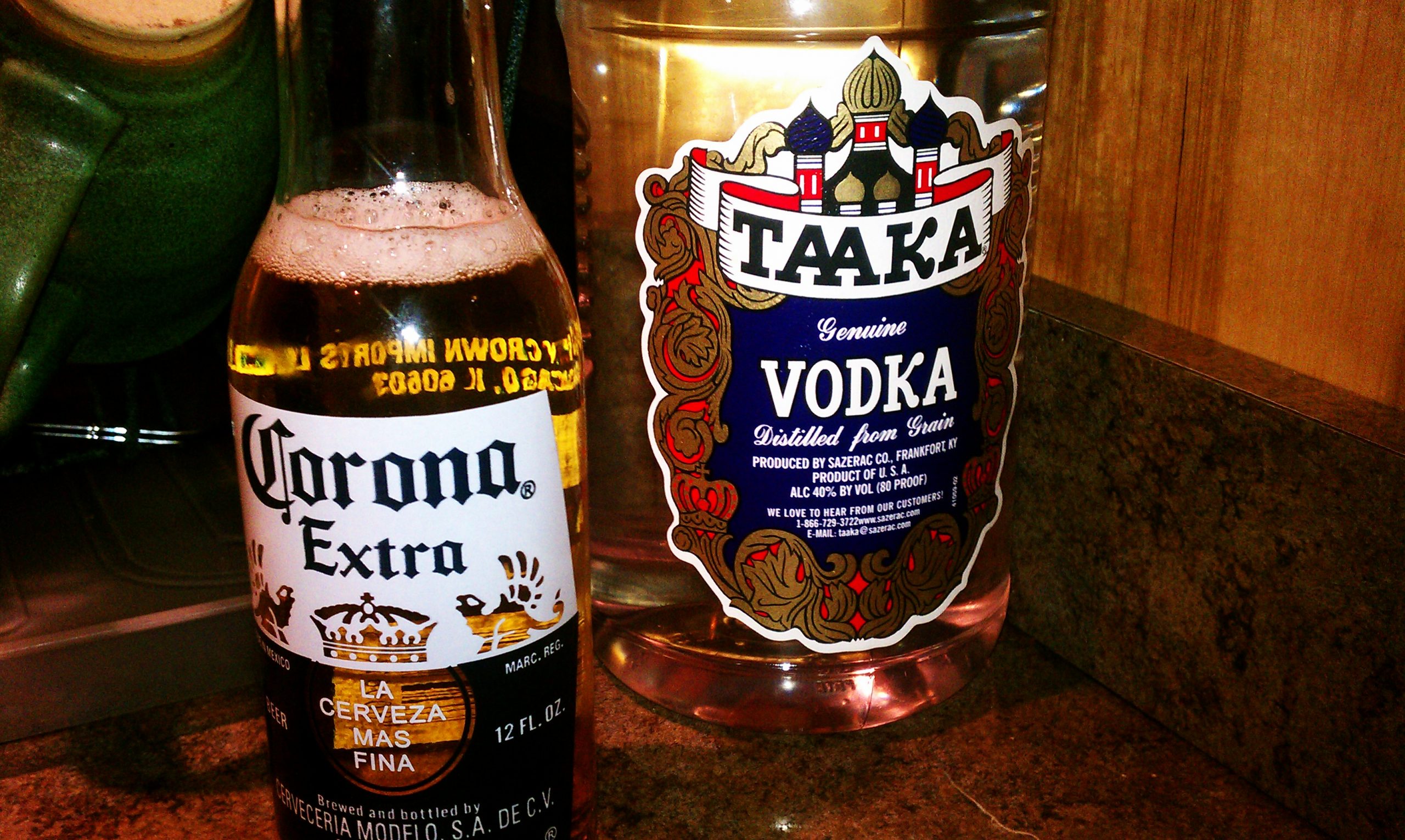In recent years, an increasing number of people are toasting to their health with a glass of wine or enjoying a cold beer on a sunny afternoon. Yet, lurking behind the sips and gulps are pressing questions many of us have wondered- “Why does beer make you fat?” or “Can beer truly lead to weight gain?” While some might dismiss these concerns, attributing them to old wives’ tales, others swear by the noticeable change in their waistline post a few rounds of their favourite brew. And then, there’s vodka – a seemingly clear, innocent liquid. Could it really contribute to those extra pounds? With so much hearsay and conflicting information, it’s crucial to distinguish the myths from the truths. This article delves deep into the facts, breaking down the composition and impact of these popular drinks on our body weight. Whether you’re a casual drinker or someone who savours their drink, understanding the intricate relationship between beer, vodka, and weight can make a world of difference in your lifestyle choices.
The “Beer Belly” Phenomenon
Ah, the notorious “beer belly” – a term that’s been passed down through generations and is almost as famous as beer itself. But what’s the reality behind this concept? Let’s dissect the factors that could make beer a potential contributor to weight gain.
Analysing the Concept of “Beer Weight Gain”
Origins and Misconceptions
The term “beer belly” refers to abdominal weight gain attributed to excessive beer consumption. While it’s a popular belief that drinking beer directly results in a protruding belly, the reality is a tad more complex. Yes, excessive beer can contribute to weight gain, but it’s not the sole culprit, and not everyone who drinks beer will develop a “beer belly”.
Beer and Its Caloric Content
Beer, like any other food or drink, contains calories. And consuming more calories than your body burns will result in weight gain. An average can of beer contains between 150 to 200 calories. When you consider that many individuals might have several beers in one sitting, the calories quickly add up. Consuming 3-4 beers could equate to half the caloric intake some people require in a day!
Carbohydrates, Calories, and Beer
The Carb Factor
Beer is made from fermenting starches from grains, primarily barley, which means it contains carbohydrates. While carbs are essential for our body as an energy source, excessive consumption without corresponding physical activity can lead to weight gain. Beers, especially certain ales and lagers, can be higher in carbohydrates. This is why some people opt for “light” beers that are lower in both carbs and calories.
The Role of Alcohol in Metabolism
Beyond carbs and calories, beer contains alcohol, which has its own caloric value – around 7 calories per gram. What’s more, when you drink alcohol, your body prioritises metabolising it over other nutrients. This means that it might temporarily halt the burning of fat, leading to more calories being stored as body fat.
Moderation and Its Importance
Just as with any other foods and beverages, the key with beer is moderation. Occasional beer consumption, when accounted for within one’s daily caloric intake, is unlikely to lead to significant weight gain. However, frequent heavy beer drinking, especially without adjusting other caloric intakes or increasing physical activity, can certainly tip the scales.
In conclusion, while beer can be a contributing factor to weight gain, it’s just a piece of the puzzle. Factors like overall diet, metabolism, physical activity, and genetics play significant roles in how our bodies manage weight. The “beer belly” might be a catchy term, but it’s essential to look beyond the myths and understand the broader picture of nutrition, metabolism, and personal habits.
Also Check – The Truth About Wine and Weight Gain
Vodka and Weight Gain- The Reality
For many, vodka might seem like a safer bet when compared to beer, especially when considering weight gain. It’s clear, it’s often consumed in smaller quantities, and it doesn’t have the same robust flavour profile as a craft beer. But is vodka truly a guilt-free drink when it comes to your waistline? Let’s delve into the nuances of this popular spirit.
Caloric Content of Vodka vs. Flavoured Mixers
Pure Vodka
At its core, vodka is distilled from fermented grains or potatoes and consists mainly of water and alcohol. Alcohol, regardless of its source, contains approximately 7 calories per gram. This means a standard shot (1.5 ounces) of vodka, which is about 40% alcohol, contains roughly 97 calories. When consumed neat or on the rocks, vodka offers a relatively controlled caloric intake.
The Mixer Mayhem

The weight gain associated with vodka often isn’t about the spirit itself but what it’s mixed with. Sugary sodas, juices, and creamy liqueurs can significantly ramp up the calorie content of a vodka-based drink. For instance, a vodka cranberry can contain anywhere from 200 to 300 calories, depending on the quantity and type of cranberry juice and vodka used. Over a night out, multiple mixed drinks can equate to the calorie count of a full meal or more!
Also Check – The Connection Between Alcohol and Weight Gain
Addressing the Question- “Does Vodka Make You Fat?”
Alcohol’s Impact on Metabolism
Like beer, when you consume vodka or any alcoholic beverage, your body prioritises metabolising the alcohol. This can slow down the fat-burning process, potentially leading to weight gain if not counteracted by physical activity.
Quantity Matters
While a single shot of vodka isn’t remarkably high in calories, the quantities consumed over time matter. Multiple vodka-based cocktails on a frequent basis, combined with the high-calorie mixers, can contribute to a calorie surplus.
Responsible Drinking
The answer to the looming question isn’t a simple yes or no. Vodka, in moderation and without high-calorie mixers, can be part of a balanced lifestyle without significantly contributing to weight gain. However, frequent and heavy consumption, especially with sugary mixers, can indeed lead to added pounds.
Vodka on its own is not a significant calorie bomb, the devil lies in the details-or, more specifically, in what you mix with it. Being mindful of mixers and practising moderation can help you enjoy your favourite vodka cocktail without worrying about its impact on your waistline.
Factors That Amplify Alcohol-Related Weight Gain
Alcohol’s impact on weight is a multifaceted issue. While the type of alcohol consumed plays a role, many other factors can either mitigate or amplify its effect on one’s weight. Let’s delve deeper into the underlying causes that can accentuate alcohol-related weight gain.
Consumption Patterns- Binge Drinking vs. Regular Moderate Consumption
- Binge Drinking- Binge drinking is defined as consuming a large amount of alcohol in a short time. This not only poses serious health risks but also leads to the consumption of a vast amount of calories in a single session. Furthermore, binge drinking can suppress the body’s ability to burn fat due to the influx of alcohol, causing more calories to be stored as fat.
- Regular Moderate Consumption- Regular but moderate drinking may not have the same pronounced impact on weight as binge drinking. While it still contributes to daily caloric intake, spreading the consumption out allows the body to better manage and metabolise the alcohol. However, “moderate” is the keyword; consistently consuming large amounts, even if spread out, can still contribute to weight gain.
Role of Mixers, Chasers, and Accompanying Snacks

- Mixers and Chasers- As previously touched upon with vodka, the mixers used in alcoholic drinks can be a significant source of hidden calories. Ingredients like soda, juice, and creamy bases can easily double or even triple the calorie content of the drink. Additionally, chasers, often consumed post taking a shot, can add further calories if they are sugary beverages.
- Accompanying Snacks- Let’s face it; alcohol often comes hand-in-hand with food, whether it’s a bowl of nuts, a plate of nachos, or a serving of fries. Alcohol can stimulate appetite and lower inhibitions, making it easier to indulge in high-calorie, salty, or fatty foods. These snacks, when combined with the calories from the alcohol, contribute significantly to the overall caloric intake.
- Compromised Judgment and Choices- After consuming alcohol, especially in larger amounts, our ability to make healthy food choices can be compromised. This might lead to opting for unhealthy late-night snacks or meals that we might usually avoid when sober.
Addressing the underlying question, “Does vodka make you fat?” and extending it to other alcohols, the answer is complex. No single alcoholic beverage, including vodka, is solely responsible for weight gain. It’s the cumulative effect of the alcohol, the associated consumables, the patterns of drinking, and individual metabolic factors.
Conclusion- Beer, Vodka, and Weight- Striking the Right Balance
Navigating the intricate relationship between alcohol and weight can seem like a daunting task. With age-old myths like the “beer belly” or fears about vodka’s sneaky calories, it’s easy to feel overwhelmed and confused. However, as we’ve uncovered, it’s not just about the type of alcohol, but the broader context of consumption.
To address the burning questions- Yes, excessive beer can contribute to weight gain, but it’s a combination of factors like its carbohydrate content, overall caloric value, and individual consumption patterns. Similarly, while vodka in its pure form might seem benign, its accompaniments and mixers can quickly escalate its caloric impact.
But, here’s the silver lining- Knowledge is power. Being aware of the nutritional aspects of our favourite drinks and their mixers, understanding our consumption patterns, and making informed choices can pave the way for a balanced relationship with alcohol. Whether you’re raising a toast with a frothy beer or sipping on a vodka cocktail, remember that moderation is key.
And for those wondering about which beer might aid in gaining weight or whether beer can truly be the sole culprit behind those extra pounds, it’s essential to see the bigger picture. A holistic approach to diet, exercise, and lifestyle choices plays a pivotal role in our weight journey.
In closing, let’s toast to informed choices, balanced lifestyles, and savouring our drinks without the weight of myths and misconceptions. Cheers!

Leave a Reply